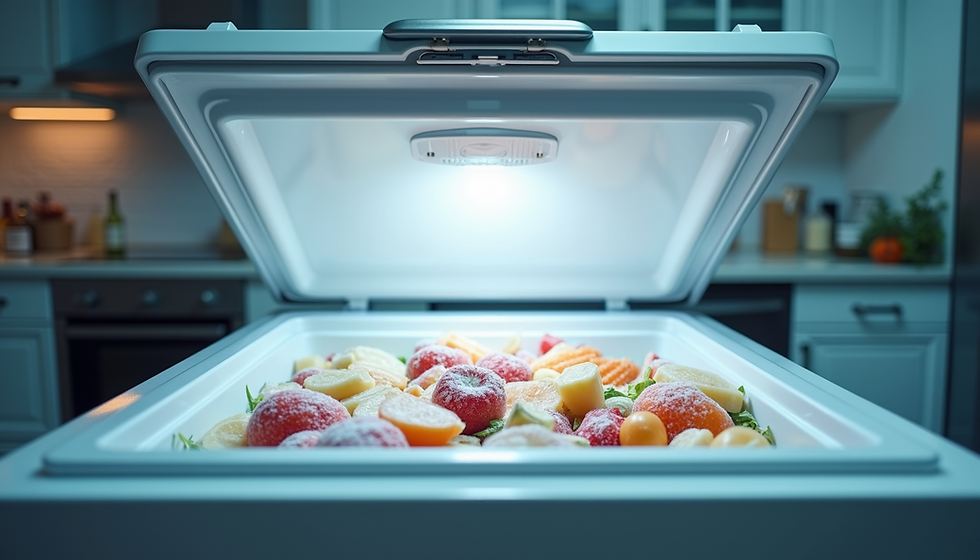Streamlining the Procurement Process in Hospitality
- Horeca Mate
- Jun 10, 2025
- 4 min read
In the hospitality industry, a well-structured procurement process can greatly enhance efficiency, reduce costs, and improve service quality. Streamlining the procurement process is essential for hotels, restaurants, and other hospitality businesses to thrive. This blog post will provide insights into how you can optimize your procurement efforts, ensuring you acquire the right products at the right prices.
Understanding the Procurement Process
The procurement process in hospitality involves several key steps that facilitate the acquisition of goods and services needed for daily operations. These steps typically include:
Needs Identification: Determine what products or services are necessary.
Supplier Selection: Find and evaluate potential suppliers based on quality, pricing, and reliability.
Order Placement: Create and send purchase orders to suppliers.
Receipt of Goods: Ensure that products received meet quality standards.
Invoice Matching and Payment: Verify invoices against purchase orders and receipts before making payments.
By understanding these steps, hospitality businesses can develop strategies to streamline each aspect of their procurement process.
Benefits of Streamlining the Procurement Process
Optimizing the procurement process offers numerous benefits for hospitality businesses. Here are some of the most significant advantages:
Cost Savings: Improved supplier relationships and bulk purchasing can lead to reduced costs.
Efficiency: Automated processes save time and reduce administrative workloads.
Quality Assurance: A well-defined procurement process helps maintain quality standards for products and services.
Better Inventory Management: Streamlined procurement enables better stock control and inventory accuracy.

Key Strategies for Streamlining Procurement
To successfully streamline the procurement process, implement the following strategies:
1. Leverage Technology
Investing in procurement software can significantly enhance efficiency. These tools provide features for supplier management, order tracking, and compliance checks. By automating repetitive tasks, such as order placement and invoice processing, you can free up staff to focus on more strategic activities.
For example, a hotel can utilize a cloud-based procurement platform to manage all orders from different departments in one centralized location. This not only minimizes errors but also enables better communication between teams.
2. Establish Strong Supplier Relationships
Developing solid relationships with suppliers can lead to better pricing, priority service, and more flexible payment terms. Regular communication helps in understanding each other's business needs, which can lead to mutually beneficial arrangements.
For instance, a restaurant can negotiate long-term contracts with local produce suppliers to secure constant access to fresh ingredients at a reduced price, benefiting both parties.
3. Implement Inventory Management Systems
Using inventory management software can help hospitality businesses keep track of stock levels and automatically reorder supplies when they fall below a set threshold. This ensures that you always have what you need on hand while preventing overstocking, which can tie up cash flow.
An effective inventory management system can provide real-time insights into stock levels, assisting in making informed purchasing decisions.

4. Streamline Approval Processes
Redundant approval processes can slow down procurement. By simplifying approval mechanisms, you can reduce lag times. Consider implementing a tiered approval system that allows lower-cost purchases to be approved faster while still maintaining oversight on larger expenditures.
For example, allowing department managers to approve orders under a certain amount can expedite the procurement for daily supply needs.
5. Continuous Training and Development
Training staff involved in procurement on best practices and new technologies is crucial. Regular workshops and seminars can help your team stay updated with industry trends and procurement strategies. This knowledge will empower them to make better purchasing decisions.
Encouraging cross-departmental training sessions can also facilitate a more cohesive understanding of each department's needs, further improving the procurement process.
Overcoming Challenges in Procurement
Despite efforts to streamline your procurement process, challenges may arise. Here are some common challenges hospitality businesses face and how to overcome them:
1. Supplier Reliability
Dependable suppliers are essential for the smooth operation of any hospitality business. It can be challenging to find reliable service providers, especially in a competitive market. Conduct thorough evaluations and create a list of preferred suppliers for different categories to mitigate risks.
2. Compliance with Regulations
The hospitality sector is often subject to various regulations, particularly concerning food safety and labor laws. Ensure that your procurement practices comply with all local, state, and national regulations to avoid legal issues. Implement training for staff on compliance standards to reduce risks further.
3. Market Fluctuations
Market fluctuations can impact costs and availability. It is essential to remain flexible and adjust purchasing strategies based on market conditions. Establishing long-term contracts for essential supplies can provide stability in pricing and availability.

Case Study: A Successful Procurement Transformation
Let’s take a real-world example. A boutique hotel found itself struggling with high procurement costs and inconsistent service delivery from suppliers. By adopting a more structured procurement process that included comprehensive supplier evaluations and the introduction of an online procurement tool, the hotel was able to:
Reduce procurement errors by 25%
Decrease overall supply costs by 15% through better negotiation practices
Improve service delivery timelines from suppliers by 30%
These outcomes not only enhanced operational efficiency but also significantly elevated guest satisfaction.
Final Thoughts
Streamlining the procurement process in hospitality is not merely about reducing costs; it's about creating a robust system that supports the overall business strategy. By leveraging technology, building strong supplier relationships, and committing to continuous improvement in staff training, hospitality businesses can achieve significant gains in efficiency and service quality.
For more information on transforming your procurement operations, consider exploring resources on hospitality procurement, which provide valuable insights and tools to enhance your buying processes. Embrace these strategies and watch your procurement process evolve into a seamless operation that contributes positively to your bottom line.




Comments